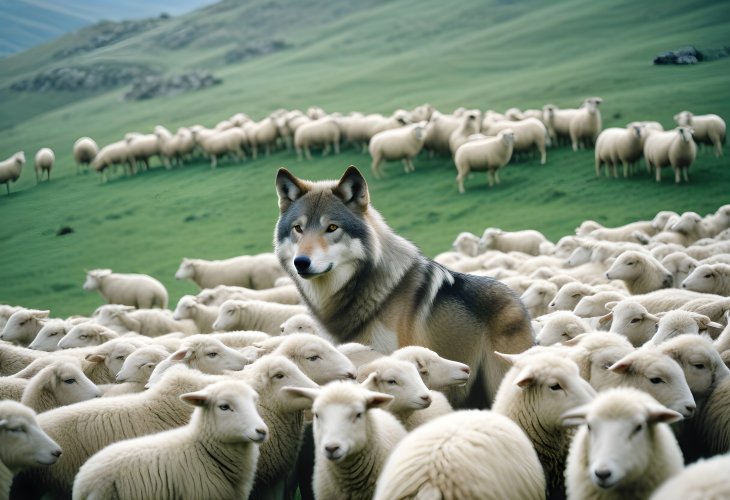Issues in the Bible
When the Beasts Rest: The Deeper Promise Behind “I Will Remove Wild Animals from the Land”
Uncover how this ancient Torah blessing reveals humanity’s future harmony with nature — a world where even predators will live in peace under divine protection

One of the blessings listed in Parshat Bechukotai is: “I will remove wild beasts from the land.” (Vayikra 26:6) What exactly does this blessing mean? Does it refer to the Messianic prophecy that “the wolf shall dwell with the lamb” — a miraculous change in nature?
Two Interpretations: Removal or Transformation
The Sifra (Midrash on Vayikra) records a debate between two Tannaim:
Rabbi Yehuda says: “I will remove wild beasts from the land” — meaning God will eradicate them from the world entirely.
Rabbi Shimon says: It means God will make them cease from harming, even though they still exist.
This same debate reappears between the Rambam (Maimonides) and the Raavad (Rabbi Avraham ben David). The Rambam, in Hilchot Melachim (Laws of Kings, ch. 12), interprets this blessing as referring to the Messianic era without altering the laws of nature. The Raavad, however, disagrees, citing this verse — “I will remove wild beasts from the land” — as proof that nature will indeed change.
Ramban’s Middle View: A Natural Fulfillment
The Ramban (Nachmanides) offers a nuanced interpretation. Even according to Rabbi Yehuda — who says “God will remove them from the world”, it does not mean that predators will vanish from existence. Rather, the verse refers to the Land of Israel specifically: in that blessed land, dangerous beasts will disappear.
This, Ramban explains, is not a supernatural miracle, but a natural outcome of divine providence — just as today, certain species have disappeared from regions they once inhabited.
Interestingly, in modern times, we might even miss the days when lions, bears, and leopards roamed the hills of Israel — but their extinction is not miraculous; it’s part of the divine promise of safety in the land.
Rabbi Shimon’s View: Divine Supervision, Not a Miracle
Even according to Rabbi Shimon, who says the animals will remain but cease to harm, this doesn’t necessarily mean a suspension of nature like the Messianic vision of “The nursing child will play on the hole of the cobra.” (Yeshayahu 11:8) Rather, it may refer to divine supervision ensuring that wild beasts simply won’t endanger Israel.
When Predators Forget to Hunt
Is it truly against nature for a predator not to kill? Not necessarily. Experience shows that even lions and leopards can live peacefully when raised by humans. Similarly, animals raised together, such as dogs and cats, can form bonds instead of hostility.
If, in the future redemption, humanity returns to an Eden-like harmony, with abundance and peace, predators will no longer need to kill for survival.
What About Serpents and Reptiles?
Creatures of the cold-blooded type including snakes, crocodiles, and others, behave differently. They do not form relationships or empathy; they kill instinctively, even toward those who raised them.
This may connect to the future slaying of the Leviathan, or the transformation of the serpent — the creature cursed at the time of Adam and Chava. Perhaps, in the ultimate future, that curse will be lifted, and even the nature of the serpent will change.
Whether by natural change, divine restraint, or spiritual transformation, the Torah’s promise — “I will remove wild beasts from the land” — reflects a vision of a world at peace with itself.
When humanity restores harmony between Creator and creation, even the wildest forces of nature will find rest.

